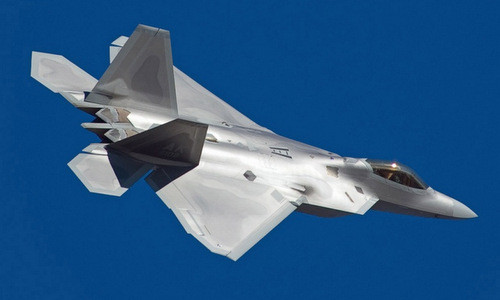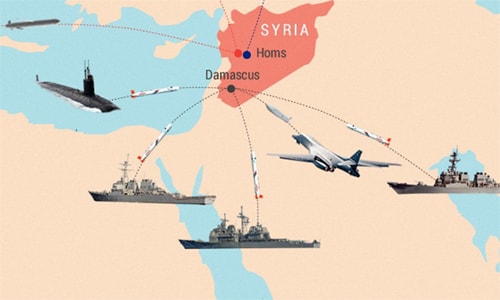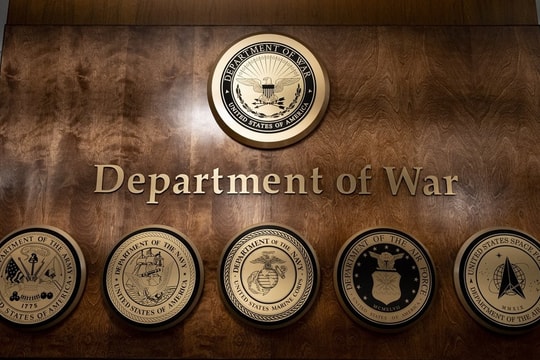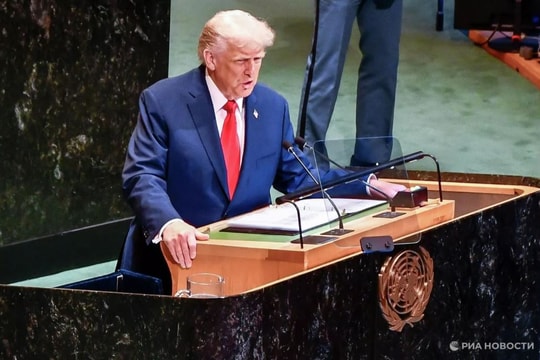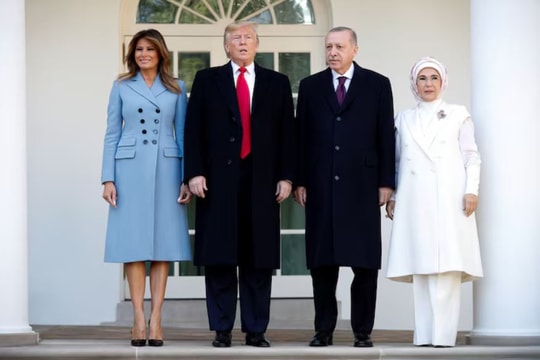Why the US did not send F-22s to participate in the airstrike on Syria
The threat from Russian air defenses and the priority of testing JASSM missiles make the F-22 only a backup plan in the US attack on Syria.
|
US F-22 stealth fighter. Photo:USAF. |
On April 14, the US, UK and France used warships, bombers and submarines to launch 105 cruise missiles to attack three facilities suspected of producing and storing chemical weapons in Syria. In this attack, the US did not use F-22 stealth fighters to participate in the battle, although this is considered the most suitable weapon to face Russia's very strong air defense network in Syria, according toMilitary.
"Of the options considered, the B-1B bomber launching the long-range missile from outside Syrian airspace was preferred for a number of reasons, including minimizing risk to the aircraft and pilots, as well as taking advantage of the high accuracy of the AGM-158B JASSM-ER missile," said Lieutenant Colonel Damien Pickart, a US military spokesman.
The Syrian army possesses many modern air defense systems such as Buk-M2E and Pantsir-S1, while the long-range S-200 systems are likely supported by radars in the Russian S-400 complex in Latakia province. This combination makes the coalition's 4th generation fighters and old bombers easy to detect, making it difficult to carry out effective attacks.
However, even when British Tornado GR4 fighters and French Rafael fighters carried out the attack, American F-22 fighters did not appear. Instead, Washington only used the Marine Corps' EA-6B Prowler electronic warfare aircraft.
The US Air Force deployed eight F-15 and F-16 fighters to the area between Cyprus and the Syrian coast during the airstrikes. These fighters were tasked with air surveillance, guarding against Russian fighters and warships. The F-16 squadron could also play a role in suppressing enemy air defenses.
Lt. Col. Pickart said the F-22 remained a backup option in the attack, but was not used because the US prioritizedJASSM-ER missile performance demonstration.
According to manufacturer Lockheed Martin, the JASSM-ER missile has a range of up to 1,000 km, is stealthy against radar and is designed "to destroy enemy air defense systems and high-value, fixed and mobile, closely protected targets, while helping to protect aircraft against hostile air defense systems."
However, JASSM has only been integrated into a few aircraft in the US military such as the B-1, B-2, B-52, F-16 and F-15E. The F-22 stealth fighter is famous for its difficulty in being compatible with new weapons due to its difficult-to-upgrade fire control software, so it has not been equipped with this type of missile.
"The F-22 squadron is always ready, but not participating in combat as expected. It is more suitable for the air defense role, protecting coalition and allied forces," Mr. Pickart said.
This is not the first time the F-22 fighter jet has been sidelined by the US in military operations. Last June, the US deployed F-15E jets to shoot down an Iranian Shaheed drone as it approached US-backed forces. At the same time, an F/A-18E Super Hornet also shot down a Syrian Su-22 attack aircraft south of Taqbah.
"We deploy F-22s to areas where the threat is greatest, but they can't be there 24/7," said Brigadier General Charles Corcoran, commander of the 380th Air Expeditionary Wing, which operates the F-22 in the Middle East.
|
US and coalition attacks on Syria. |
Pentagon officials say the F-22 doesn't necessarily need to go into direct combat. The fighter jet serves as the "eyes and ears" on the battlefield, then relays information to allied forces without fear of being detected from a distance by the enemy.
During the US Tomahawk missile attack on Syria in April 2017, many F-22 fighters appeared near Syrian airspace. They constantly switched positions, ensuring that there were always surveillance planes in the air. For these types of missions, the F-22 is highly valued because it is the only fighter that can survive in an anti-access/area denial (A2/AD) environment.

